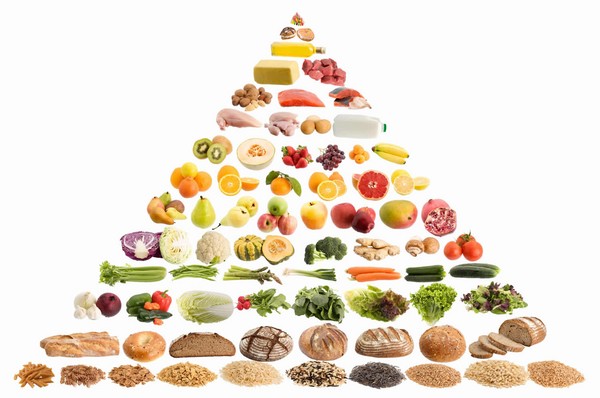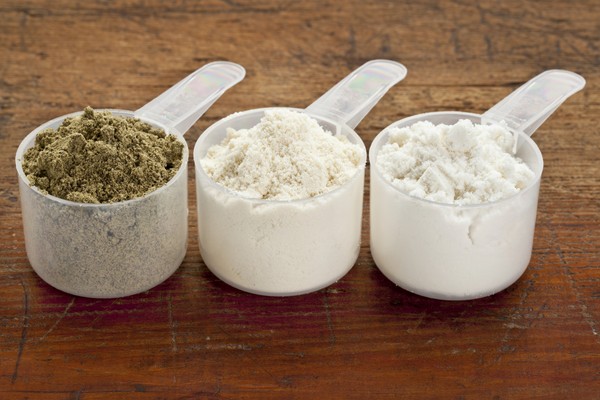What is the daily amount of protein for a person?
Protein is an important "building material" of the human body, along with carbohydrates and fats involved in the functioning of body cells. Proteins are largely responsible for the formation of the human muscle structure and are responsible for the general condition of the body.
Daily protein intake for humans

Lack of protein leads to serious health problems:
- decreased immunity;
- hair loss (hair loss);
- fragility of the nail plates;
- delayed menstruation in women;
- poor absorption of vitamins;
- diseases of the liver and kidneys.
On a note! You can learn about the composition of vitamins in the body on the basis of a urine test.
Calculating the daily protein intake is very important for those who care about their figure and, in general, about their health.
What should be considered when determining the daily protein requirement?
- The average norm for an adult is 40 g of protein. At the same time, the substance is found not only in plant, but also in animal food. It is advisable to combine both vegetable and animal protein in the diet. It is not critical, if there is a little less protein, then there is nothing to worry about. If it exceeds the permissible norm, then it simply will not be absorbed by the body and will be released along with the urine.
- When calculating the daily share, attention should be paid to by-products formed during the assimilation of protein. For example, ketone bodies, the excess of which leads to liver problems. So, if you feel the taste of acetone or unpleasant gas formation, reconsider the diet in favor of reducing protein foods.
- The maximum share of absorption of this substance in one meal is 30 g. Such a volume can be obtained by eating chicken breasts, cottage cheese or eggs.
- Digestibility is a merit of the work of the gastrointestinal tract of the human body. And if you have problems with the intestines, then the substance will not be fully absorbed.
On a note! The following indicators are considered to be good protein digestibility: vegetable - 70%, animal - 90%.
Daily protein intake: calculation
Before you determine your individual daily protein intake, you need to know your “ideal” body weight. The ready-made Brock formula will help us with this:
- Height below 165 cm, subtract 100.
- Height up to 175 cm, subtract 105.
- Height over 175 cm, then subtract 110.
The resulting figure will be the ideal weight in accordance with growth.
![]()
When calculating the daily mass of protein, you should consider:
- Lack of physical activity - 1.2 g is multiplied by 1 kg of weight.
- Physical activity 1-2 times a week - 1.6 g is multiplied by 1 kg of weight.
- Training from 3 times a week - 2 g is multiplied by 1 kg of weight.
The diet leaves its mark when calculating the protein per daily portion. So, for the life support of the body during the diet, it is necessary to consume 2 g of protein per 1 kg of ideal body weight. Such a high rate is due to the large expenditure of internal resources of the body.
Daily protein intake for an athlete
A balanced intake of this important nutrient for athletes is the basis of competition preparation. The set of muscle mass and the general health indicators of the athlete depend on how correctly the diet is drawn up.

Experts have developed a unified concept for calculating the daily rate of this enzyme. It amounted to 2-2.5 g, multiplied by the weight of the athlete in kilograms. As a result of simple calculations, the athlete determines the optimal amount of substance for training.
Attention! This method was developed taking into account the complete digestibility of the protein. As mentioned above, the digestive system does not absorb all the substance, which means that the calculations need to be adjusted in accordance with the individual characteristics of the athlete.
An important point for those who are engaged in active physical activity is the combination of regular food and protein shakes. For the period of serious loads, athletes take sports nutrition. In this case, the ratio in the diet should be as follows:
- 70-75% comes from regular food;
- 25-30% comes from sports supplements.

For the period of the competition, the proportions of protein intake in the body can be 50/50%.
Calculate your individual daily protein intake, maintain a balance in the consumption of proteins, fats and carbohydrates and be healthy!






